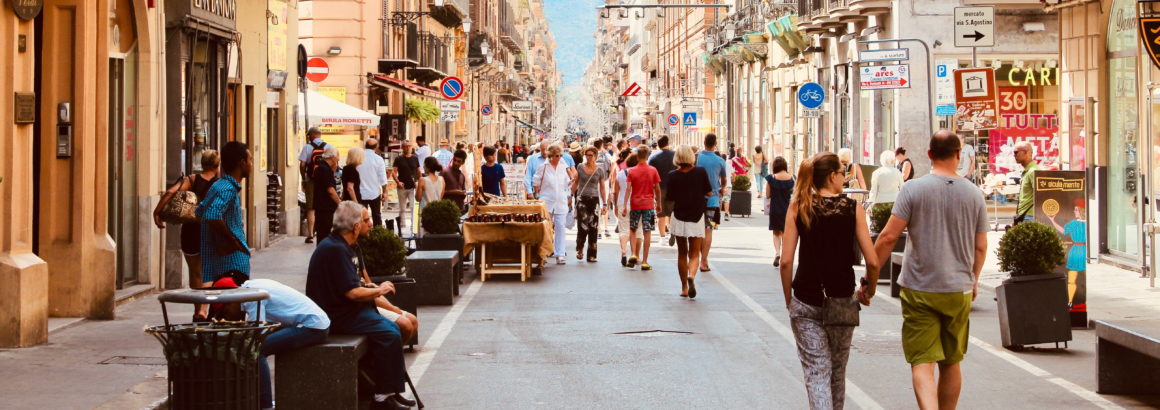Applying a zero waste vision to current societal challenges
Why a zero waste vision?
A zero waste vision can and should be applied to most current societal challenges – be it climate, businesses, cities, our own lifestyle.” – Joan Marc Simon, Director-Founder at Zero Waste Europe
For the climate
As we move closer towards the climate emergency, the role that waste management, anti-incineration, and reduced plastic production plays in lowering our global greenhouse gas emissions will become more and more important. At the international and national level, we need to address all sectors of society in order to keep global warming below 2 degrees.
At Zero Waste Europe we recognise the inherent climate impacts of waste and address this across all our work and are constantly striving to emphasise the mutual benefits of a zero waste lifestyle for both the environment and the climate.
For the post-COVID-19 world
The COVID-19 pandemic has shown, on one hand, how vulnerable we are as a species; but, on the other hand, how we can fight common threats when we work together. Yet, the most important lesson from this crisis is that, in order to prevent new pandemics, we need to stop the environmental destruction that breeds them.
Zero waste is about rebuilding ecosystems and designing ways to thrive with them, rather than against. Our zero waste agenda is all about finding ways to encompass a fulfilling life for both humans and the planet: a win-win outcome.
We are concerned that resorting to disposable items to fight the pandemic only reinforces its root causes. As such, we promote reusable solutions that work in the short- and in the long-term.
For cities
What defines a “Zero Waste Municipality” is the firm and verifiable commitment to move towards zero waste and the results that it will deliver in the next years.
Zero Waste Europe brings together and represents the European municipalities that have openly committed to the goal of continuously reducing waste generation and improving waste separate collection and hence redesigning the relationship between people and waste.
The network of European municipalities towards zero waste comprises frontrunners in the field of waste resource and management – such as the best performing entity in Europe, the Contarina district in the Italian region of Veneto. However, the aim of Zero Waste Europe is not only to give visibility to best performers, but also to facilitate and recognise the commitment of those municipalities, which, albeit maybe currently throwing unsatisfactory results, are firmly committed to consistently advance towards zero waste.
To visit the network of European zero waste municipalities, find the Zero Waste Masterplan to join them and to compare how do they perform in comparison with other European towns go to: www.zerowastecities.eu
For businesses
Business people are real system optimisers. They don’t like “waste” because it is the result of a system inefficiency. Not only “waste” costs businesses money, but it also symbolises bad design. As circular thinking is getting popular, leaders from around the world are realising the perfect alignment between the zero waste philosophy and business performance. In Europe, a number of success stories have already been written.
Zero waste businesses follow a set of guiding principles:
- Raw materials should be obtained, whenever possible, from recycled materials and not from new extraction. Any new extraction should be only justifiable when it comes from a regenerating source. A Zero waste business will be diverting 90% from landfill and incineration.
- The linear system of production needs to be changed into a circular system in which the recycling potential can be maximised.
- Production processes should be redesigned to avoid waste generation inside and outside the plant.
- Energy consumption and waste generation from the product/machine should be included in the optimisation calculations.
- Applying eco-design and integrating product policy approach.
- Changing the focus from labour productivity to resources productivity.
For our own lifestyle
As people constantly try to reduce their costs, optimise their day-to-day and go “smart”, “zero waste” is becoming a trend and creating a buzz across Europe and beyond.
Is zero waste really possible at home? It all starts with purchasing decisions, proper planning and setting up a system for what and how materials enter your home in the first place.
There are multiple blogs, videos and books that have been published to help people transition towards the zero waste lifestyle. In the end, it is mostly a matter of conscious shopping and proper waste separation at home.
Our cities and municipal waste management systems still have a long way to go to mainstream zero waste and our mission is to drive this discussion at the European level. Until then, there are many things you can do to cut your costs, live smarter and reduce your environmental footprint.
